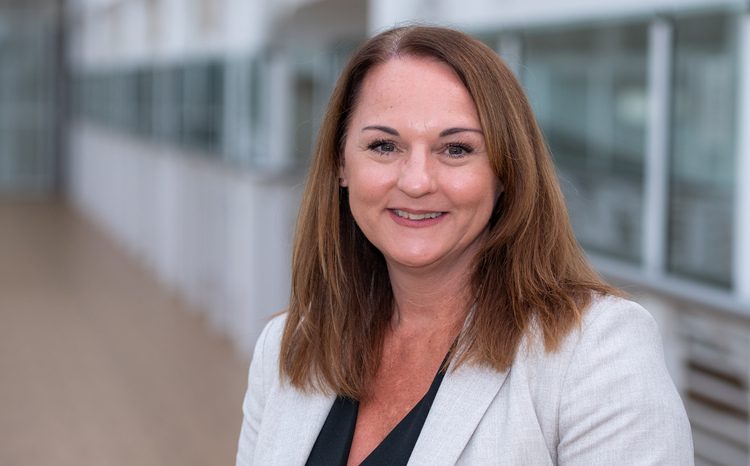Receptionist call triage system launched
- 30 July 2007
Decision support specialists Plain Healthcare have launched a new triage system for receptionists dealing with patients on the telephone or presenting at the surgery, called Reception Odyssey.
The system is designed to help practice receptionists determine how urgent a request for an appointment is and what priority to give the patient, ensuring patients are seen by clinical priority; not just ‘first come, first seen’.
It also helps the non-clinician to safely and quickly identify potentially serious complaints, for immediate clinical attention.
Reception Odyssey presents short sets of basic age-sex specific questions, linked to the patient’s problem, as well as a single, general triage question.
From the responses recorded, Odyssey will immediately recognise conditions that need to be assessed by a nurse or doctor urgently and either recommend an immediate transfer to a nurse or doctor for further assessment or a direct referral to the emergency ambulance service.
The system was trialled by 10 GP practices across the UK and is now embedded in the EMIS LV system and will be extended to EMIS PCS users at a later date.
Patient urgency is recommended as either ‘immediate’, ‘urgent’ or ‘no special urgency’. The practice can determine its own policies for how to handle each level of urgency and the system can easily be configured to meet a trust’s needs.
Colour-coded responses give a visual indication of urgency. All urgency levels may be over-written; how to handle each level is for the practice to decide and configure.
A summary of the receptionist/patient encounter is attached as a PDF document to the patient’s record in EMIS LV, for all clinicians to review prior to patient consultations.
Plain Healthcare’s head of sales, Chris Coyne, told EHI Primary Care: “Receptionists are the first people to make decisions in GP practices. This solution will improve their ability to make these decisions, especially in terms of patient access to medical attention, so that patients are seen based on clinical need and not just the order of a queue.”
He added: “We have trialled Reception Odyssey in most regions of the UK and the feedback from GPs and practice staff was very encouraging.”
Coyne said that the move will mean that surgeries can avoid liability claims, by seeing urgent cases first, thus avoiding later inquiries because a patient was kept waiting.
“The system ensures that doctors see the most pressing cases immediately avoiding any medical liability later. Receptionists can prioritise patient slots based on the answers to some very simple, plain English questions, answered using drop-down suggestions. Trusts want to change their practices to work in this way and we are keen to help them.”
A spokesperson for Plain Healthcare added: “Using Reception Odyssey will help your practice to fully realise the Access DES funds available (£2.06 per patient in 2006/7) and QOF points; it will help your receptionists identify those patients whose symptoms are of serious concern, thus reducing your exposure to clinical risk and free up appointment diaries for those in most need.”
Patients do not have to answer questions from receptionists, and notes explaining symptoms and refusal to answer questions can be attached to the patient record.
Practices are also given posters to explain to patients that they will be asked a series of questions by the receptionist in order to find out the clinical necessity of their problem. Most patients are keen to do this, Coyne says.
The Medical Defence Union (MDU) and the Medical Protection Society (MPS) said that in order for a practice to consider such a system receptionists must be fully trained, competent in medical awareness and respect a patient’s confidentiality.
Dr Nicholas Norwell, a medico-legal adviser for the MDU, told E-Health Insider: “Many practices already use triage to determine the urgent and not so urgent cases. This could be a problem though if receptionists are being advised to take any sort of medical examination which they are not trained for.
“If a practice considers this, then receptionist staff need to be trained and know what they are doing with a full written protocol in place, and more importantly patients should be spoken with in places where they cannot be overheard. They shouldn’t need to go into any detail at all, perhaps follow some sort of script to prioritise cases, but that shouldn’t mean that patients who don’t want to talk to a receptionist are de-prioritised.”
Dr Angelique Mastihi, a medico-legal adviser for the MPS re-iterated this message, telling EHI Primary Care: “Protocols should be in place and confidentiality is a huge issue. It would be wholly inappropriate for a receptionist to be doing this triage at her front desk in front of the whole waiting room, where in small communities, you might bump into your neighbour, for example.
“Some patients do not want to disclose their confidential medical problems to a receptionist when they come in for an appointment. They might feel uncomfortable seven know who the receptionist is. In this situation, you need as many safety nets as possible to ensure patient safety is not compromised.”
Both Medical Defence associations said GPs too should ensure that there is a system in place that does not compromise patients, especially as responsibility for the practice sits with them.





